
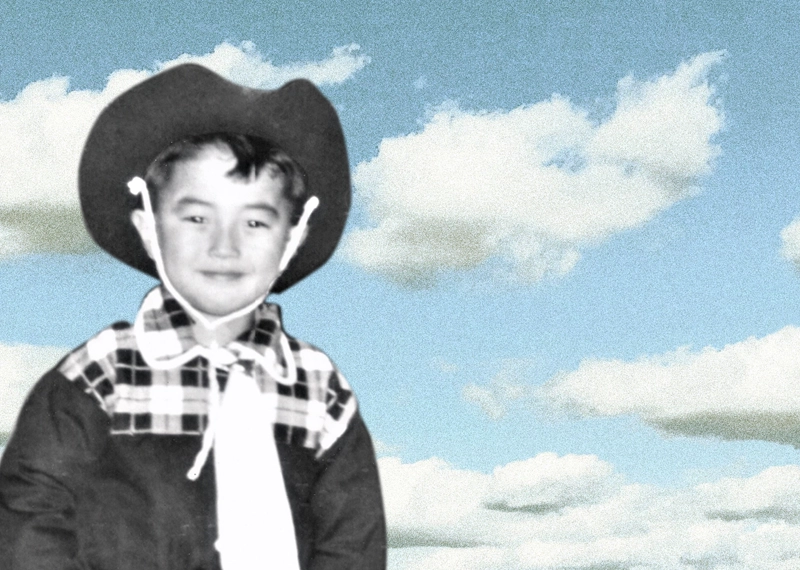
Sayonara Cowboy
by William Yukikazu Fellenberg
by William Yukikazu Fellenberg
Sayonara Cowboy is about a boy born to an American G.I. and a Yokohama shopgirl in Occupation Japan. His story begins as a four-year-old in 1952, wending his way in a world still recovering from two dreadful legacies in the aftermath of World II.
“Bill Fellenberg’s coming-of-age memoir offers the equivalent of a warm hug. Pulled between two cultures, two countries and two parents, he navigates his childhood with wry self-deprecation and gentle insight. Sayonara Cowboy is, at its heart, about the wars we fight—across oceans, in our own homes, within ourselves—and the love that is the only path to peace.”
—BIZZY COY, writer, The New Yorker, Vulture
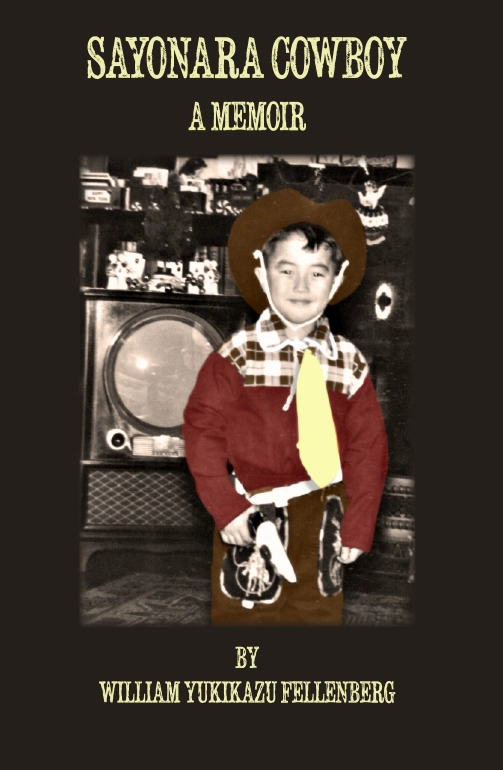
“Much was beyond my knowing. If the wind blew a certain way, I might feel an unsettling presence as I stepped out of my family’s house of bamboo and earth. I imagined ghosts, even in daylight.
This was my Yokohama, or more accurately its remains, where a self-proclaimed master race had once launched a great navy to lord over the sea and to send armies abroad to rape, plunder, and murder millions. They were my mother’s people.
To thwart them, American airplanes had dropped napalm bombs on the city and burned it to the ground. They were my father’s people.”
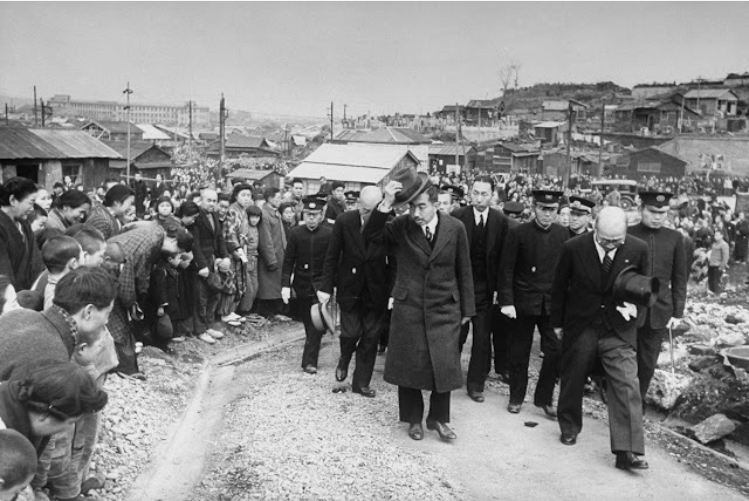
Japan’s Emperor Hirohito in Yokohama during his first visit to see living conditions in the country since the end of the war, February 1946 (Photo by Alfred Eisenstaedt–source)
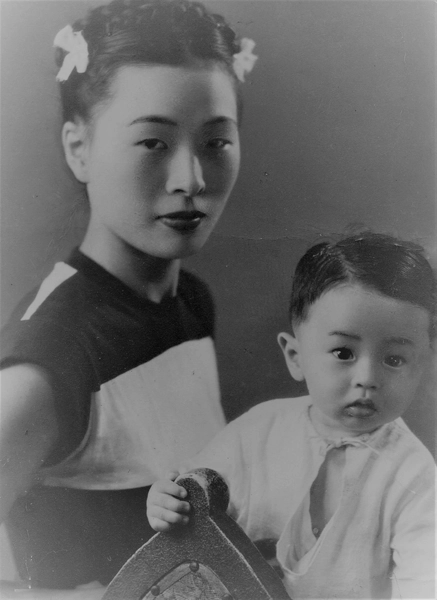
With my mother, Sachiko Takano Fellenberg
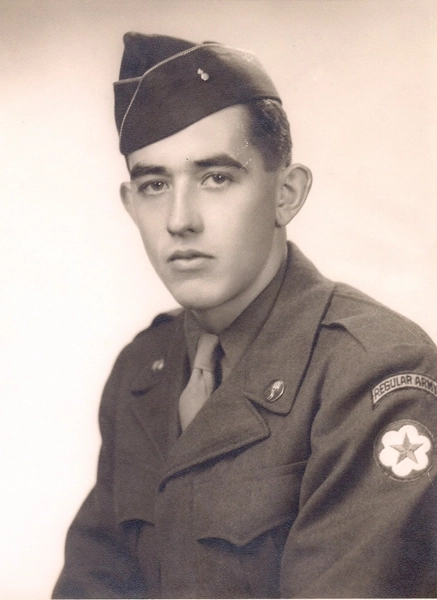
My father, William Kipp Fellenberg
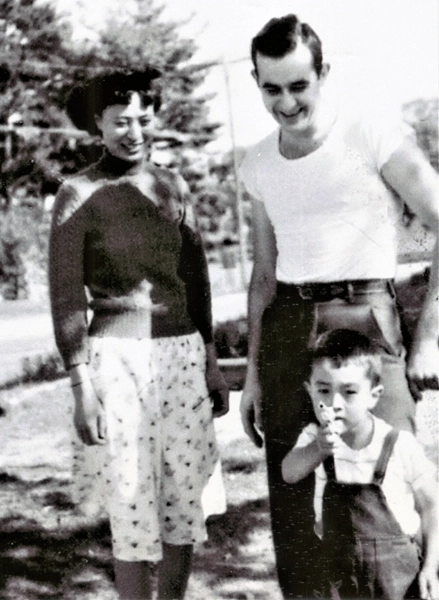
Together
“I was an incidental consequence of the war. But for the war, I would simply not be. Our family, which had sustained itself in the ruins of a failed empire, would surely succeed in America—in the new land on the greenest side of Earth.”
“Beautiful. Heartbreaking. Joyful. Sayonara Cowboy is written with a keen eye, a bruised heart & a deft sense of humor. It’s wonderful.”
—GREG TRIGGS, author, That Which Makes Us Stronger, The Next Happiest Place on Earth
The boy is shunned by the Japanese as ainoko (mongrel) during his early childhood in Yokohama. Listening to stories from his American father, he becomes enamored of the world of cowboys and Indians. Later, as a schoolboy, he’ll navigate American ways, as a stranger in a strange land. New Jersey isn’t the wild west he pictured. He’ll be captivated by the new country, despite its reluctance to accept him. As he begins elementary school, he’s the yellow worm in the otherwise fine white apple. Still, he’s solaced by his parents and grandparents, until in a heartbreaking turn, when he’s eight, his mother deserts the family and returns to Japan. Soon after, his father foists custody of the boy on his grandparents.
How the Sayonara Cowboy responds to these life-changing events becomes the crucible for his search for connection, love, and meaning as he grows up, a search that’s alternately earnest and misguided; sometimes pathetic, but often funny. If there’s a credo to the story, it’s embedded in the rare advice he’ll receive from his wayward father—in a bar of course—“Don’t let the bastards grind you down—especially when you’re your own worst enemy.”
“In Sayonara Cowboy, Bill Fellenberg looks back in rueful amusement at his troubled youth as a boy with a complicated ethnic background and no parents in sight. After stumbles ranging from the embarrassing to the hilarious, Bill finds his equilibrium as a writer, a lover, and an adult. Written with skill and wit, Sayonara Cowboy is an enjoyable lesson for us all in how to forgive.”
—RAYMOND P. SCHEINDLIN, professor emeritus of Hebrew literature,
author of The Book of Job and other works of literary translation
Recent Posts
I WANT TO CHANGE MY KILLING WAYS
In early May, Donna and I doubted that our year-old garden of perennials could recover from an exceptionally harsh winter followed by a spring of chilly monsoons. When good weather finally arrived, so did [...]
Bridging Worlds
Sachiko Takano Fellenberg Although a year has passed since the publication of Sayonara Cowboy: A Memoir, I still find myself tumbling backward in time. I’m unsure if it’s a function, or dysfunction, of [...]

